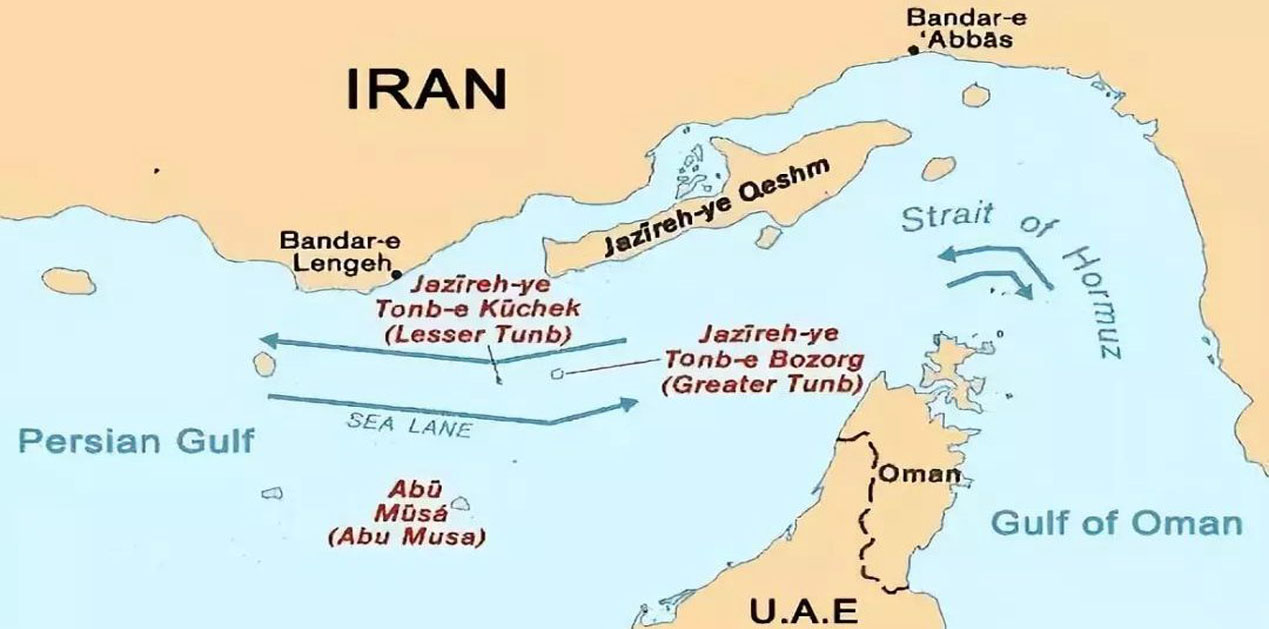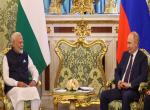Australia has joined the United States of America (US) led maritime security mission in the Persian Gulf. It is one of the three countries to have become part of the mission, the other two being the United Kingdom (UK) and Bahrain. All three countries have joined the mission this month in August. Israel has also expressed its willingness to support the mission. However, this has been met with fierce opposition from Iran and some Arab states. Currently, Israel is collaborating with the US led naval mission in sharing intelligence and is not expected to send ships to the region.
Australia has defended its decision by claiming that the recent incidents in the Persian Gulf threaten its economic and national interests, and are a challenge to the freedom of the seas in general. Canberra will be sending a P-8A Poseidon surveillance plane before the end of this year and a frigate in January 2020. The United Kingdom has also upped its contribution by declaring on Saturday that it would send its third ship, a destroyer, to support the US Navy. India has also deployed two ships to protect its shipping. However, India has acted independently and has maintained a low key presence.
The US has found it difficult to build a coalition to support its goals this time. Despite providing, what it claims are, evidence of the Iranian role in the attacks, which took place on oil tankers in the Strait of Hormuz in May and in June, Washington has faced reluctance from its allies around the globe to support its objective. This is in stark contrast to previous American initiatives when the US found willing allies for its armed missions in Afghanistan, Iraq, Syria and the two Gulf wars. Trump’s critics are happy to claim that it is the American President’s erratic and headstrong approach to diplomacy which is responsible for this. However, a closer observation shows that this is the result of a long process of evolution in global geopolitics.
The unilateralist approach that marks Trump’s reign had become evident quite early in the US, after the balance of power was disturbed with the demise of the Soviet Union in 1991. The US unilaterally withdrew from the anti-ballistic missile (ABM) treaty in 2002. This was the first major arms treaty that the US had withdrawn from in the post Second World War order. After the 9/11 terrorist attacks, the US President presented a fait accompli to the rest of the world with a “with us” or “against us” option.
Washington’s second war against Iraq in 2003 was based on the flawed proof of the non-existent nuclear weapons programme of Iraq and without an explicit sanction from the UN Security Council. The war severely damaged America’s credibility. Both France and Germany opposed it. The two states have refused to support the US naval mission in the Persian Gulf currently and have toyed with the idea of a Europe led mission in parallel. They also have the support of other European countries this time.
The differences between the US and its allies are growing wider. Although the European states are themselves divided, they have become conscious of the fact that they often get dragged by America into conflicts and disputes. American hostility to Iran is a prime example. Due to the unilateral US withdrawal from the Joint Comprehensive Plan of Action (JCPOA) agreement with Iran and the reimposition of the sanctions, the European states now face a credibility crunch.
The other signatories to the JCPOA have been unable to find alternate means to keep Iran in the deal. In fact, they have found it difficult to convince their own companies to stay engaged in Iran. If things are allowed to deteriorate, European states would lose all relevance in global geopolitics. After all, if unilateral American decisions make or break deals, then what good is their signature on any international deal? As a result, we are seeing a pushback by Europe, which has the potential of increasing in magnitude, as the US continues on its unilateral path. The lack of respect for European sentiments is forcing Europe to develop its own foreign and security policy.
The second point to be noted is that the US retains its ability to project hard power around the globe and is perhaps the only state to be able to do so. Trump invited other countries to protect their own shipping in the Persian Gulf through social media on June 24th. He pointed out that the US was not importing oil from the Persian Gulf region anymore. He demanded that the countries who have higher stakes in unimpeded maritime traffic in the Persian Gulf, must protect their own shipping. The Chinese ambassador to the United Arab Emirates (UAE) has stated that Beijing is studying the US proposal. The Chinese naval power is increasing at a tremendous pace, but China remains non-committal to deploying its ships far from its shores.
As stated earlier, the European countries were also mulling whether to send their own ships to the Persian Gulf, independently of the US. However, they have remained undecided on this front till date. Europe may not have the necessary naval capability or the numbers to deploy and manage a naval mission so far away from their bases, without the support from the US, anyway. The United States therefore is in a unique place where it alone has the bases on land, platforms in the Oceans and, most importantly, the will and decisiveness to use them, around the globe.
The third point is about brotherly states, which share the ethnicity and culture, coming together, despite their differences, when pushed. This is directly from the seminal work of American political scientist Samuel P Huntington, The Clash of Civilizations. Both the UK and Australia share the same Anglo-Saxon heritage as the US. They also share similar democratic ethos and lingual profile. The two states have had their differences with the US leadership in the past but value their alliance with the US sufficiently not to let temporary issues come in the way.
The ‘clash of civilizations’ has been challenged by governments around the world. That is largely because it is incompatible with modern international diplomacy. However, in the present circumstances, the support of the kin countries (UK and Australia) to the core power (US) perfectly explains the buildup of the maritime coalition in the Persian Gulf. In fact, the Australians are clueless about which ships they are expected to protect in the Strait of Hormuz. Most transport ships carry flags of convenience these days. Clearly, the Australian contribution is aimed at retaining its strong security relationship with the US rather than to protect its maritime interests. America’s NATO allies in contrast have chosen otherwise.
The rise of China and the increasing bonhomie between China and Russia is changing the geopolitical world order. The Euro-Atlantic alliance is fraying as the US pursues its interests unilaterally. Europe is increasingly seeking to distance itself from aggressive American manoeuvres. On the other hand, the Anglo-Saxon states maintain close security ties with America. The US also retains powerful allies in Asia (Japan) and West Asia (Israel). Therefore, despite its differences with European states, the US possesses the strongest alliance system around the world. The US also retains its military edge against adversaries and competitors.
India itself has risen as a middle ranking power. It has maintained its old relationships with major powers and is building new ones today. The world powers are also beginning to acknowledge India as a major player, gradually. New Delhi has dramatically improved its relationship with the US. It is also working at its relationship with France in Europe. These developments have not come at the cost of its traditional ties with Russia as New Delhi learns to play the game. In fact, India has also managed its relationship with China quite well despite occasional hiccups.
The US led maritime coalition in the Persian Gulf gives India a glimpse of the evolving global order. While New Delhi has done well in the near past to improve its standing in the world, it is important to foresee how the cards will be stacked in the future. This will help the country develop a strategy to leverage its own position and further its interests. With increasing divergences across the Atlantic, the world may be moving towards a truly multipolar world order. And India may have opportunities in the future to play a larger role in such an order.
(Rajesh Soami is a geopolitical analyst who writes on global developments from Indian perspective)
(The paper is the author’s individual scholastic articulation. The author certifies that the article/paper is original in content, unpublished and it has not been submitted for publication/web upload elsewhere, and that the facts and figures quoted are duly referenced, as needed, and are believed to be correct). (The paper does not necessarily represent the organisational stance... More >>
Image Source: https://safety4sea.com/wp-content/uploads/2019/05/gulf-oman-1080x640.jpeg











Post new comment